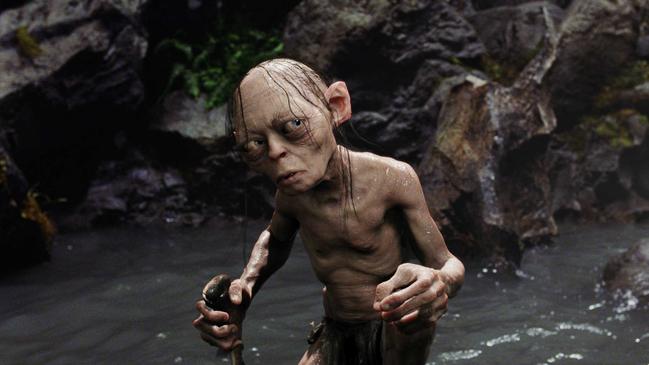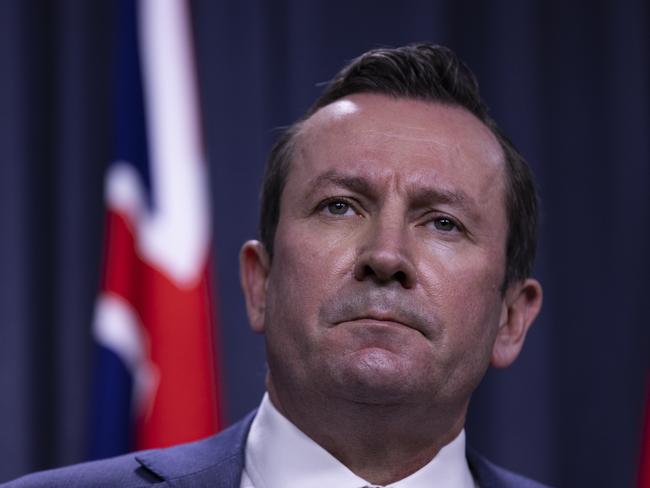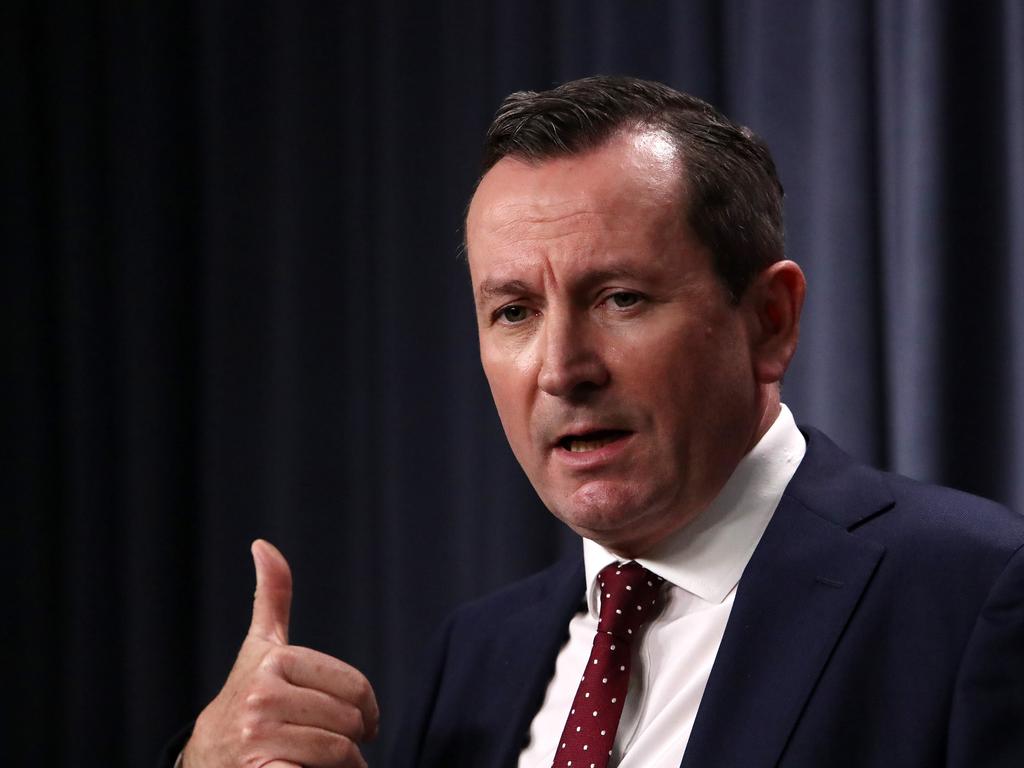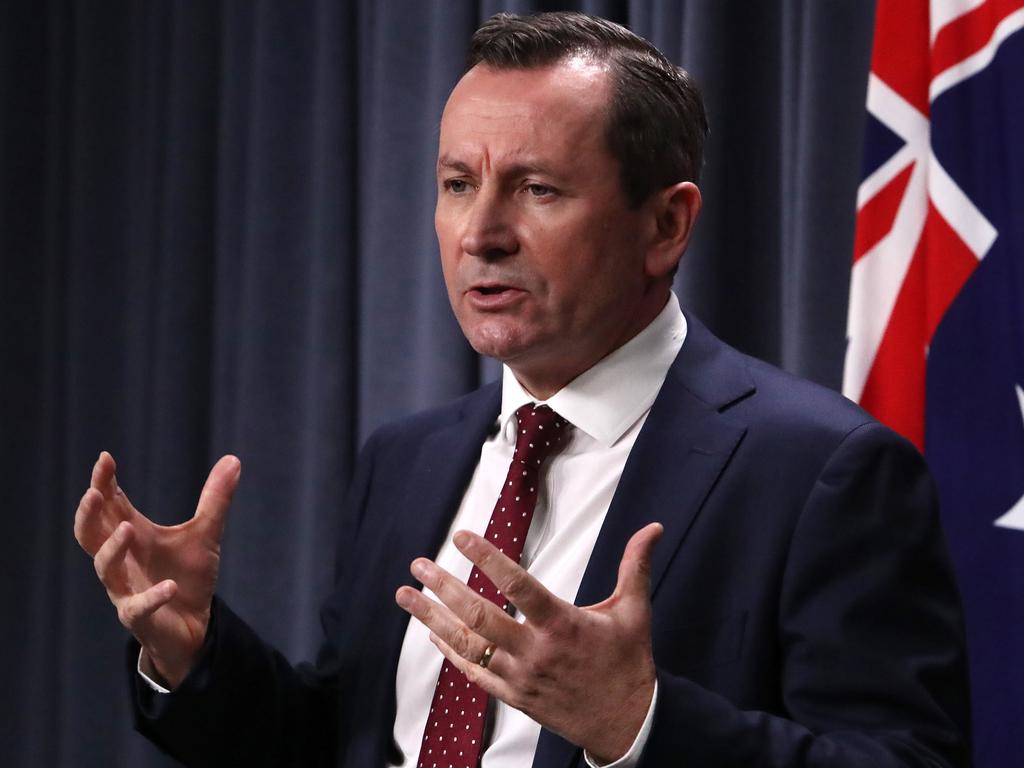
Premier Mark McGowan’s star rose on the beast with two backs, China and Covid-19. His protectionist approach to the pandemic has stirred latent nativism in the state where isolation is considered a virtue and open society anathema to the good life. As such, McGowan is determined to resist the 80 per cent vaccination trigger to reopen Australia’s internal borders.
The problem is not a lack of scientific evidence to support closed borders and lockdowns beyond the 80 per cent target, but McGowan’s use of the pandemic as a weapon against political opponents. He falsely accused the federal government of planning to infect people with the virus, saying: “Why are they on a mission to bring Covid to Western Australia, to infect our public?”

No sound person would think relaxing internal borders once the vast majority is vaccinated constitutes a mission of murder most foul. McGowan’s embrace of half-baked conspiracy theories looks like a political opportunist trying to shore up power, whatever the cost to Australians at large. It is cheap and ugly politicking.
Like Chinese President Xi Jinping, McGowan strikes a strongman pose on the political stage. He has an adoring populace who bristle at any criticism of their leader – a reflexive response that feeds the kind of voracious narcissism that has undone many politicians in their prime. On Father’s Day, Labor asked people to sign an electronic card with the message, “From the people of Western Australia”, to McGowan that read “Thanks for being … State Dad”. When a politician assumes the image of father, voters become his children by extension. In a representative democracy, the citizen leads the state, not the reverse. West Australians might want to consider their political contract with government and whether it includes being reduced to children in the eyes of the state.
McGowan’s sense of invincibility has been bolstered this year by a thumping election win and a budget surplus of $5.6bn. WA Labor delivered the record surplus with a big-spending, high-taxing budget in the middle of a pandemic. Whatever doubts people might harbour about the long-term impact of McGowan’s pandemic approach, they will struggle to be heard above the sound of Sandgropers cashing in.
WA Today described it as the “cashed-up bogan budget” while NSW Treasurer Dominic Perrottet compared McGowan hoarding GST to the covetous curmudgeon Gollum, from Lord of The Rings. McGowan should not have taken quite as much credit for the surplus given that high iron ore prices and the federal Coalition government’s reform of GST allocation benefited the state greatly. But whether you see him as McGowan or McGollum, the WA Premier looks unbeatable.
It would be easy to portray WA voters as cashed-up bogans devoid of culture, but McGowan’s electoral success is a reflection of poor alternatives. Many Sandgropers felt seriously let down by former Liberal premier Colin Barnett, who left the economic credibility of his party in tatters weeks before the 2017 election when the Pre-election Financial Projections Statement forecast the state’s net debt would increase to $41.1bn in 2020. Like McGowan, Barnett had extensive dealings with the CCP, signing a 2011 memorandum of understanding with China’s National Development and Reform Commission. It is understandable for WA leaders to seek close ties with such a lucrative trading partner, but a lot has changed in the decade since Barnett struck his deal.
Iron ore is the beating heart of WA exports. In the 2020 calendar year, WA traded $103.6bn in exports to China while importing goods worth $6.1bn. China was Queensland’s largest export market also, with $20.5bn in goods traded in the year to December 2020. It is no surprise that state and territory leaders who depend on China for profit are reluctant to criticise the ruling regime. But McGowan’s ongoing defence of the Chinese government, despite its role in the origins of the Covid pandemic, is indefensible.
For some time, McGowan maintained his defence of Chinese tech giant Huawei even after the federal government barred it from Australia’s 5G network and despite credible intelligence indicating the company posed a security risk to Western nations. The $200m contract with Huawei was cancelled in 2020 after the US imposed trade restrictions on the company. In June, McGowan lashed out again at the federal government for holding China to account, blaming Australia for “talk of conflict and trade retaliation” and saying it “must stop”. The CCP praised him in return. China’s Foreign Ministry spokesman, Zhao Lijian, told the Australian government it was provoking conflict and should instead heed McGowan’s advice on matters of foreign diplomacy.
A significant number of West Australians enthuse about the prospect of secession, but it would be naive to assume greater independence would be the consequence. Rather, they would become more intertwined with the ambitions of the CCP. For Labor, McGowan is the man who cannot lose. But West Australians stand to lose a lot if they follow State Dad on a slow boat to China.






The Covid pandemic has changed the face of politics. The classical liberal ideal of small government has followed individual freedoms into the museum of political philosophy. Personal privacy has been sacrificed at the altar of public health. And, in the Labor-led states of Australia, populism has made a left turn.